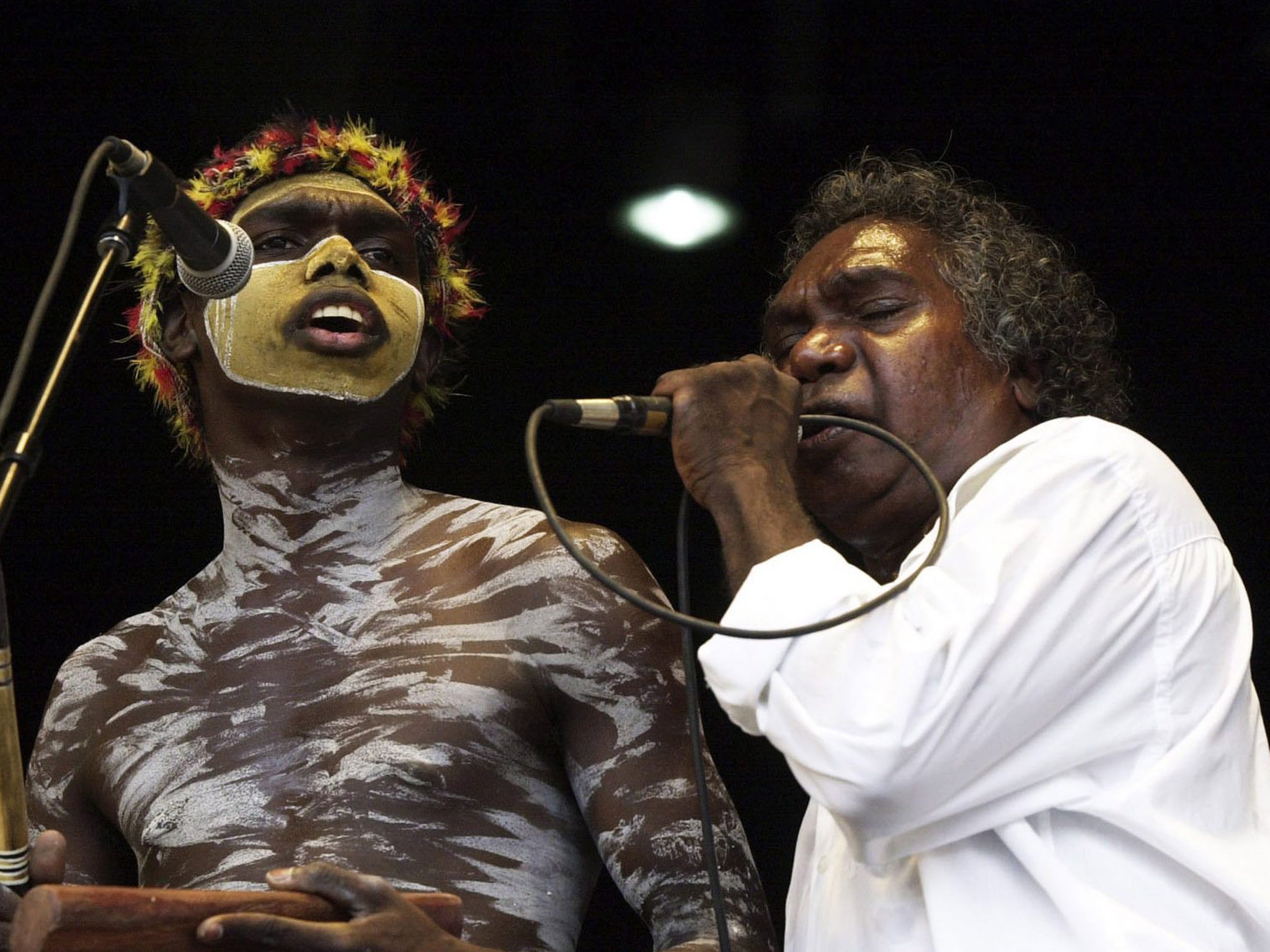Mandawuy Yunupingu: Pioneering native Australian singer

Mandawuy Yunupingu was the former lead singer of the Australian indigenous band Yothu Yindi and one of the country's most famous Aborigines. He gained worldwide fame in the 1980s and 1990s with his hits "Treaty" and "Tribal Voice".
Yunupingu began his career as a teacher, and became the first indigenous Australian to be appointed a school principal. He developed what he called the "both ways" educational philosophy, which utilised Western and Aboriginal teaching techniques.
His penchant for blending cultures carried over to his musical career, with his band Yothu Yindi, which he formed in 1986. The group included Aboriginal and white musicians and won fans with its unique combination of traditional indigenous sounds and modern pop and rock. They released six albums, toured the US and Canada as a support act to Midnight Oil and toured Australia with Neil Young.
The band's most famous song, "Treaty," was written in response to an unrealised promise the then-Prime Minister Bob Hawke made in 1988 – the country's bicentennial – to formalise a treaty between the government and Aborigines. In 1992 Yothu Yindi performed the song in New York at the launch of the United Nations' International Year of the World's Indigenous People.
"He was able to lead a band that performed and played its songs and expressed very strongly his culture in all parts of the world," Australia's education minister and former Midnight Oil frontman Peter Garrett told reporters. "His legacy is immeasurable but the loss is great. He was named the 1992 Australian of the Year for his role in building bridges of understanding beteen Aboriginal and non-Aboriginal people."
In recent years, he was forced to undergo dialysis three times a week as he struggled with kidney disease. In 2009, Yunupingu told Australian television that he had battled alcoholism before he was diagnosed. Alcohol was not the direct cause of his kidney failure, but worsened his other health problems.
"I had the whole world in front of me, and this small, little kidney problem got me right where it hurts," he told the ABC. "I have to be dependent on a machine. I never thought it would happen to me."
Aborigines, who make up 2.3 per cent of Australia's 23 million people, die on average a decade younger than other Australians. They are four times more likely to die of chronic kidney disease than other Australians, and are far less likely to receive an organ transplant, according to a 2011 report by the government's Australian Institute of Health and Welfare.
"This is one of the real problems in modern Australia – too many Aboriginal people die too young," opposition leader Tony Abbott told reporters. "He was obviously a very significant cultural figure to the wider Australian community as well as amongst Aboriginal people and it's tragic that he's gone."
Tom Djambayang Bakamana Yunupingu (Mandawuy Djarrtjuntjun Yunupingu), musician: born Yirrkala, Northern Territory, Australia 17 September 1956; married Yalmay Rirritjingu (six children); died Yirrkala 2 June 2013.
Join our commenting forum
Join thought-provoking conversations, follow other Independent readers and see their replies
Comments